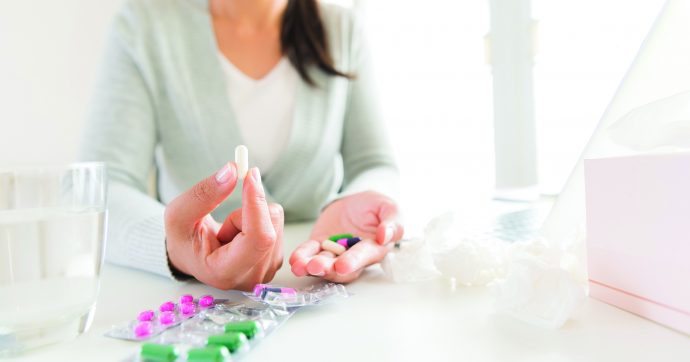Breastfeeding is important as it provides the ideal nutrition for your infant and is necessary for your baby’s healthy growth and development. It also helps reduce the incidence and severity of infectious diseases. However, can a breastfeeding mum still take medications if she is ill?
Can a breastfeeding mum take medicines? While the short answer is usually yes, there’s certainly no easy answer to this question. The American Academy of Pediatrics (AAP) released a report in 2013 which indicated most medications and immunisations can be used safely while breastfeeding. This does not mean you should play doctor and self-medicate!
Keep your doctor in the loop

The AAP recommends breastfeeding moms to inform their doctors, so they can weigh the risks vs benefits of the medication. Your doctor will consider whether the medication is necessary or not by advising you on the potential effects it may have on breast milk production, how much the medication may seep into your breast milk and any potential adverse effects on your infant.
In the case of antibiotics which is a common medication, some amount will seep into the breast milk. Some medications for treating allergic rhinitis may decrease breast milk production and/or cause lethargy or irritability in infants.
With medications, there is a possibility of the drug passing through breast milk and will collect in the infant’s body. Whether this will happen and to what extent, would depend on the infant’s metabolism rate and the duration the medication is taken. This is why it is important to keep your doctor notified when you are breastfeeding so that he can prescribe you with a ‘safer’ alternative.
Although herbal products are generally safe for consumption during lactation, do make sure they come from a reputable source. Some herbal products may even contain heavy metals and toxins. Remember to inform your doctor too, as some herbs may contain certain alkaloids (a type of chemical compound) that could potentially harm infants ingesting it via breast milk.
Generally safe
Some medications are relatively safe, and these include:
- Certain painkillers (Acetaminophen, Ibuprofen)
- Some antibiotics (Fluconazole, Penicillin – such as amoxicillin and ampicillin)
- Antihistamines (Loratadine, Fexofenadine)
In the case of lactation mastitis, treatment includes changing breastfeeding technique, and continued breastfeeding is encouraged as it does not pose a risk to your infant. If antibiotics are prescribed, be cautious and check if you can continue breastfeeding as normal, or if you should refrain from breastfeeding for a period of time after taking each dose. Also, decongestants containing pseudoephedrine should be used with caution as the active ingredients can decrease breast milk supply.

Medications that should not be taken while breastfeeding include:
- Anticancer drugs
- Radioactive pharmaceuticals
- Amiodarone (a type of heart medication)
- Chloramphenicol (a type of antibiotic)
- Ergotamine (used to treat headaches, e.g. migraine)
- Gold sodium thiomalate (a type of gold salt used for rheumatoid arthritis)
- Phenindione (an anticoagulant)
- Retinoids (used to treat skin problems)
- Tetracyclines (a type of antibiotic)
- Psychotropic medications
When in doubt
Always check with your doctor whenever you plan to take or are given any medication. Never assume it is okay just because a doctor prescribes it as he may not be aware that you are breastfeeding. Avoid taking unnecessary medication, such as herbal medication, high-dose vitamins and unusual supplements.
Lastly, pay close attention to any signs of adverse effects your infant may display, such as change in eating or sleeping habits, fussiness, or a rash. If anything unusual happens, stop taking your medication immediately and consult your paediatrician.
An educational collaboration with Obstetrical and Gynaecological Society of Malaysia.







Comments